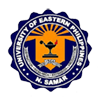Program Educational Outcomes:
The BS Agricultural and Biosystems Engineering (BSABE) program aims:
- Provide leadership in planning, implementing, and monitoring ABE projects and programs;
- Occupy supervisory positions in private and public organizations; locally and internationally;
- Own and/or manage ABE based business enterprises;
- Pursue advance studies in ABE and emerging related fields; and
- Occupy responsible positions in ABE education.
Program Outcomes
A graduate of the Bachelor of Science in Agricultural Biosystems Engineering Program shall have the ability to:
1. Apply knowledge of mathematics and science to solve complex agricultural engineering problems;
2. Design and conduct experiments, as well as to analyze and interpret data;
3. Design a system, component, or process to meet the desired needs within realistic constraints such as economic, environmental, social, political, ethical, health and safety, manufacturability, sustainability, cultural & historical heritage preservation and promotion in accordance to standards;
4. Function independently and work effectively in multi-disciplinary and multi-cultural teams;
5. Identify, formulate, and solve complex agricultural engineering problems;
6. Act in recognition of professional, social, and ethical responsibilities;
7. Effectively communicate orally and in writing using both English and Filipino;
8. Broad education necessary to understand the impact of complex agricultural engineering solutions in a global, economic, environmental, and societal context;
9. Recognition of the need for, and an ability to engage in life-long learning;
10. Articulate and discuss contemporary issues in agricultural engineering and the latest developments in the field of agricultural engineering;
11. Use techniques, skills, and modern agricultural engineering tools necessary for engineering practice;
12. Knowledge and understanding of engineering and management principles as a member and leader in team, to manage projects and in multidisciplinary environments; and
13. Participate in the generation of new knowledge or in research and development projects aligned to local and national development agenda or goals.




